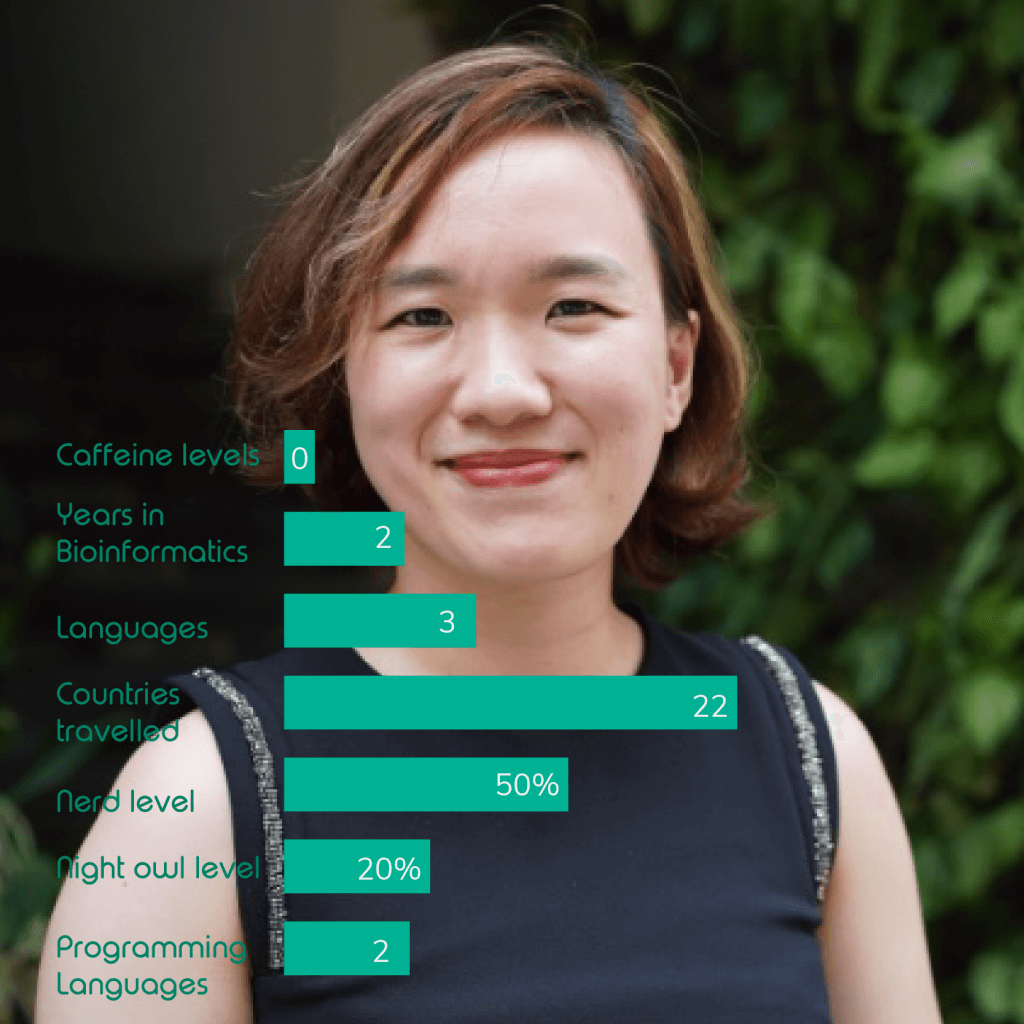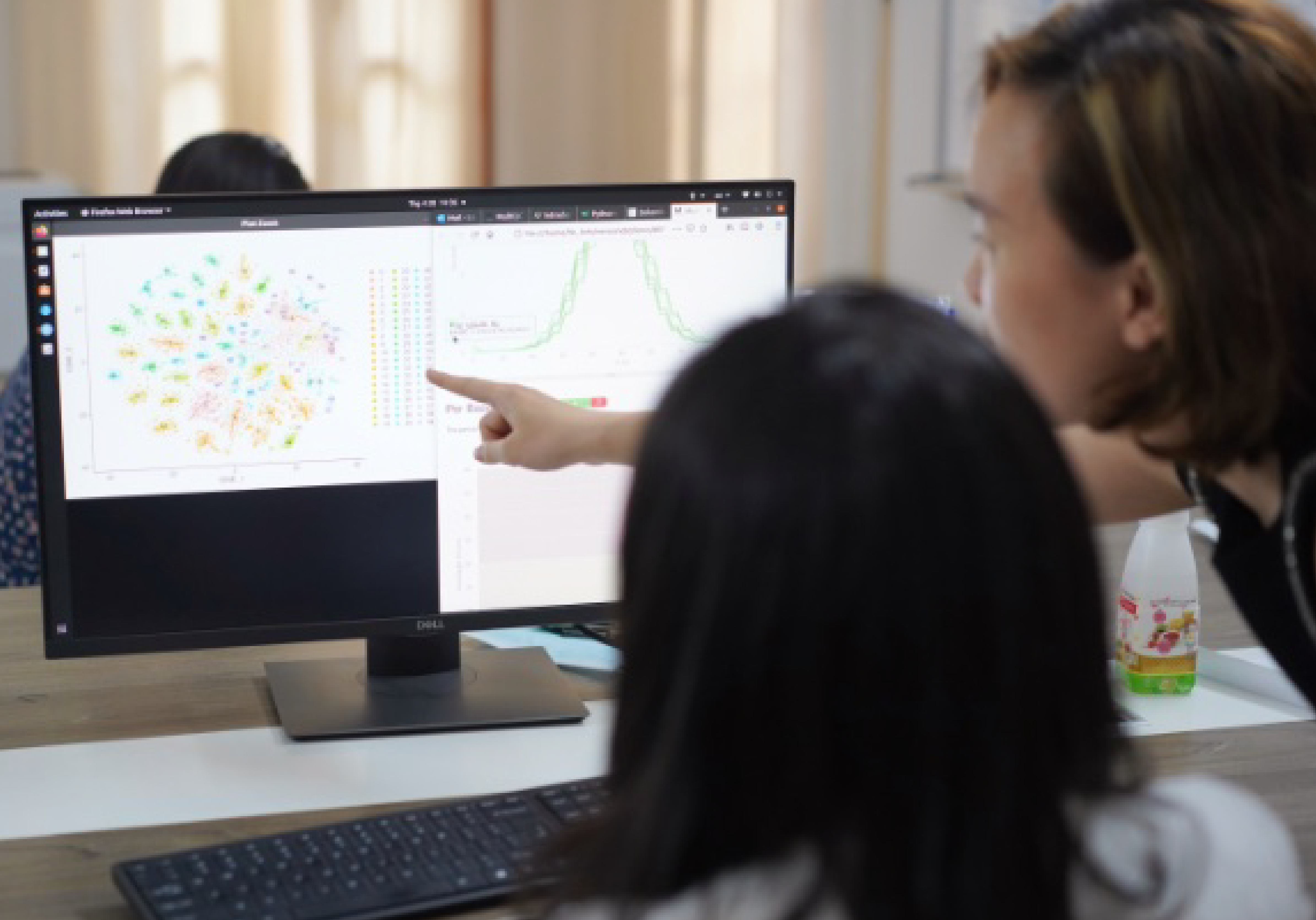Our Bioinformatics service is here! RNAdia for the Nadia platform now has the option to purchase data analysis services, as easily as you would buy a reagent kit.
Most single cell researchers will be well versed in the headache that bioinformatic can be but there’s no need to despair because our bioinformatics team is here! Because our service offers you dedicated support from one of our team members for all your queries and needs, we thought it was important you get to know your new partner in data analysis!
So let’s introduce you to Xuan Nguyen, our Bioinformatics Leader for Dolomite Bio.

Tell us a little about yourself
Hi! I’m Xuan and I’m the Bioinformatics Leader at Dolomite Bio. I oversee the analysis and support of data generated from the Nadia Instrument. I enjoy seeing raw data being transformed into beautiful graphs, reports, and dashboard. I hope to have the pleasure of working with you soon.
How did you come to be working in this topic/ field?
With new developments in technology, big data and artificial intelligence, there is a lot of evolving potential and new applications to the field of biology. Now we can generate so much more data at much shorter time, and with that scientist have to adapt to the future of biological data. I attended an innovative liberal arts college in the US, called Minerva Schools at Keck Graduate Institute (now renamed Minerva University), and it’s where I was prepared for the future of work.
At university we were taught the 4 Cornerstone classes: Formal Analyses (Advanced Maths & Python), Complex Systems – which taught me how to see things from different perspectives, Empirical Analyses (or Scientific Methods), and Multimodal Communications. Later-on, I learned R in a class called “Knowledge: Information-based decision”. This class taught me to extract insights from big data and make dashboards and reports that summarize them. I did my thesis on plant-based pharmacology, incorporating Chemistry, Biology, and Data Analysis.
What are 3 word you would use to describe Dolomite Bio?
Friendly
Energetic
Passionate
We are all young biologists with a mission of bringing single cell technology to you, and every day we contribute our efforts into making single cell more accessible and effective.
What do you like most about your job?
I am given a lot of freedom to explore and expand my knowledge. After all, single cell is a relatively new field and there’s just so much to explore, to test out, and to optimize. My colleagues are also highly passionate in their work, they inspire me to be better every day.
Which are your favorite tools for single cell data visualization?
For convenience, ASAP, developed by EPFL. It works best with human, mouse, and Drosophila samples. However, as long as the gene annotations are on Ensembl, you are good to go.
For completeness, R. You can mix and match codes from different libraries to create different visualizations.
What advice would you give researchers planning their first single cell projects?
First, you need to choose the technology that fits your project. There are many options for capturing single cells, such as plate-based, or droplet-based techniques. Our company, Dolomite Bio, offers droplet-based systems for single cell research. Then start small with a pilot project first, getting to know the method and your samples. For example, you could work with us through the Single Cell Consultancy Service to understand which parameters are right for your sample type.
For a project, you need to determine a few key parameters: number of samples, number of cells per sample, and sequencing depth. These are critical in your experimental success.
Then once you have gotten your data, you need to process these data. Data will go through a pipeline of quality control – filtering – and analysis. This step could be easy to some but difficult to others. You can attempt these steps yourself or work with a bioinformatician. We at Dolomite Bio offer bioinformatics service and are happy to discuss your experiment any time.
What are common mistakes or problems when planning single cell projects?
Some people dive in single cell work head-first. By that I mean they plan a project without technical validation or piloting. Single cell experiments are expensive and researchers should be more strategic in how they spend their funds.
Another common problem in single cell data is that we need integration from multiple experiments to comprehensively analyze the complex biological processes. There are multiple initiatives for consortium, database, and cross-sharing platforms. However, many remain isolated efforts that have not been able to gain traction.
What did you want to be when you were growing up?
I wanted to be a model haha, and then I realized that might not be possible when I didn’t grow any taller. By middle school I wanted to be a doctor, and I worked really hard throughout high school and university for it. A few changes in perspectives and financial circumstances made me pivot my goals. That said, I’m happy and proud of all the progress I’ve made and am making.
Fun fact about yourself?
I was set to be Reproductive Sciences researcher, but now pivoted to Bioinformatics to the surprise of many, including myself.
What do you enjoy doing when you are not working?
I study Mandarin Chinese, practice kickboxing, and watch anime.
Your top 3 favorite Podcasts/Books/movies?
My top 3 favorite books are:
- When breath becomes air
- Midnight library
- Educated
Thank you for taking the time to get to know Xuan, click the links below to meet our other bioinformatics team members, Sebastian Müller and Linh Hoang here:

